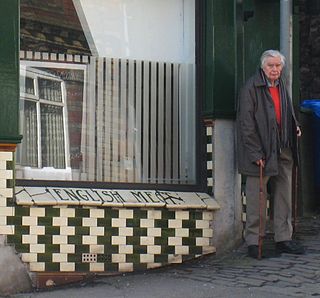A Quote by Ross Parmenter
True vision is always twofold. It involves emotional comprehension as well as physical perception. Yet how rarely we have either. We generally only glance at an object long enough to tag it with a name.
Related Quotes
The seeing of objects involves many sources of information beyond those meeting the eye when we look at an object. It generally involves knowledge of the object derived from previous experience, and this experience is not limited to vision but may include the other senses: touch, taste, smell, hearing, and perhaps also temperature or pain.
True originality consists not in a new manner but in a new vision. That new, that personal, vision is attained only by looking long enough at the object represented to make it the writer's own; and the mind which would bring this secret gem to fruition must be able to nourish it with an accumulated wealth of knowledge and experience.
Discipleship is not limited to what you can comprehend – it must transcend all comprehension. Plunge into the deep waters beyond your own comprehension, and I will help you to comprehend even as I do. Bewilderment is the true comprehension. Not to know where you are going is the true knowledge. My comprehension transcends yours.
I think we start suffering as soon as we come out of the womb. I think that people tend to stereotype. When they think of suffering, they think of abuse - physical abuse, emotional abuse, poverty, that kind of thing. There's different levels of suffering. I don't think that it has to do with how much money you have - if you were raised in the ghetto or the Hamptons. For me it's more about perception: self-perception and how you perceive the world.
We always think, 'Well, for a person who's blind, it must be an amazing, joyful miracle if by some chance their sight is restored to them.' Now, this may be true for blind people who lost their vision at a later age. It's rarely true for people who were born blind or who go blind at a very young age.
Well, I think I'm not a non-believer, and I'm not a believer. But, on the other hand, I couldn't give you a good enough reason why EVP doesn't exist. I don't know enough about it, so how could I say it's not true. Plus, a person's reality is a person's reality so that's your belief system. It's all perception anyway, isn't it.
Continual improvement involves an appreciation that there is always a better way to do things irrespective of how much you have achieved or how comfortable you might be with where you currently are in life. As a young international rugby player I learnt a valuable lesson about sacrifice. The bottom line was the phrase 'long after the price is forgotten the quality remains'. Undertaking JOLT Challenge involves sacrifice but it is well worth it as you explore creative and innovative ways of challenging yourself for constant improvement in many areas of life.
But man has other needs as well: emotional needs. These, too, are few, but every bit as important as his physical requirements, yet not so simple. If they aren't met, they can be as devastating as physical hunger, as uncomfortable as a lack of shelter, as incapacitating as thirst. The frustration, isolation and anxiety brought about by unmet emotional needs can, like physical privation, produce death or a degree of living death - neurosis and psychosis.

































